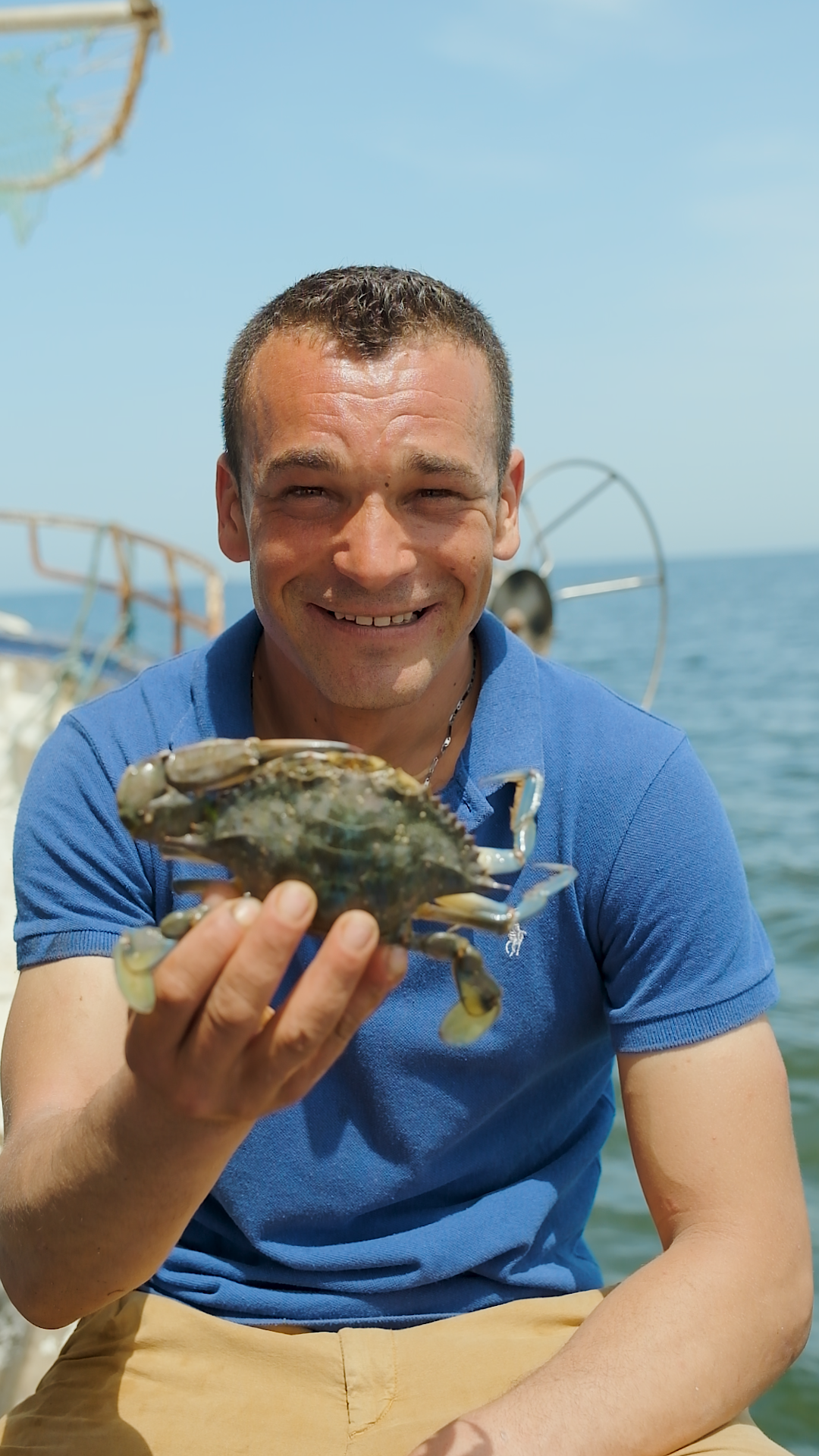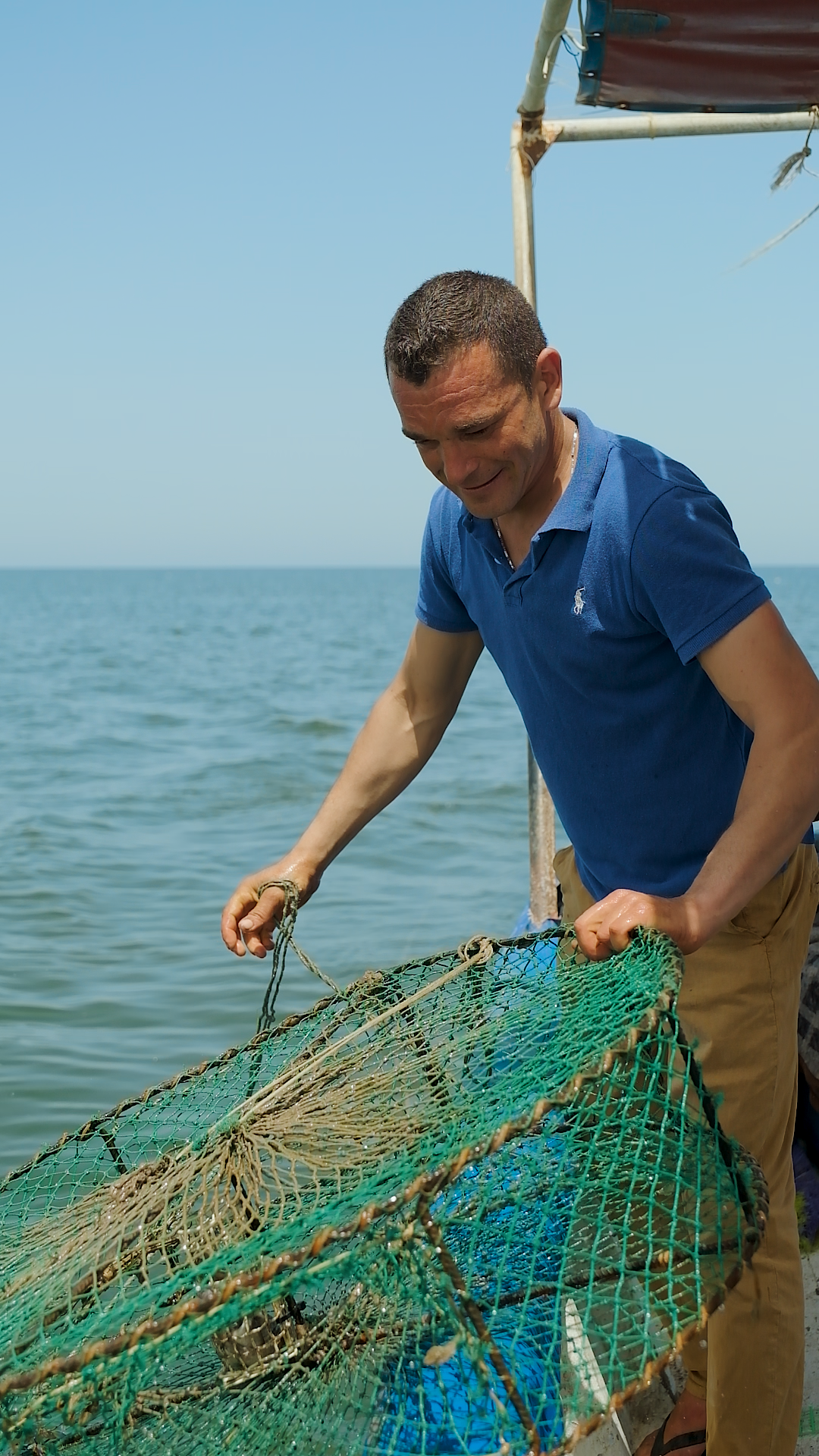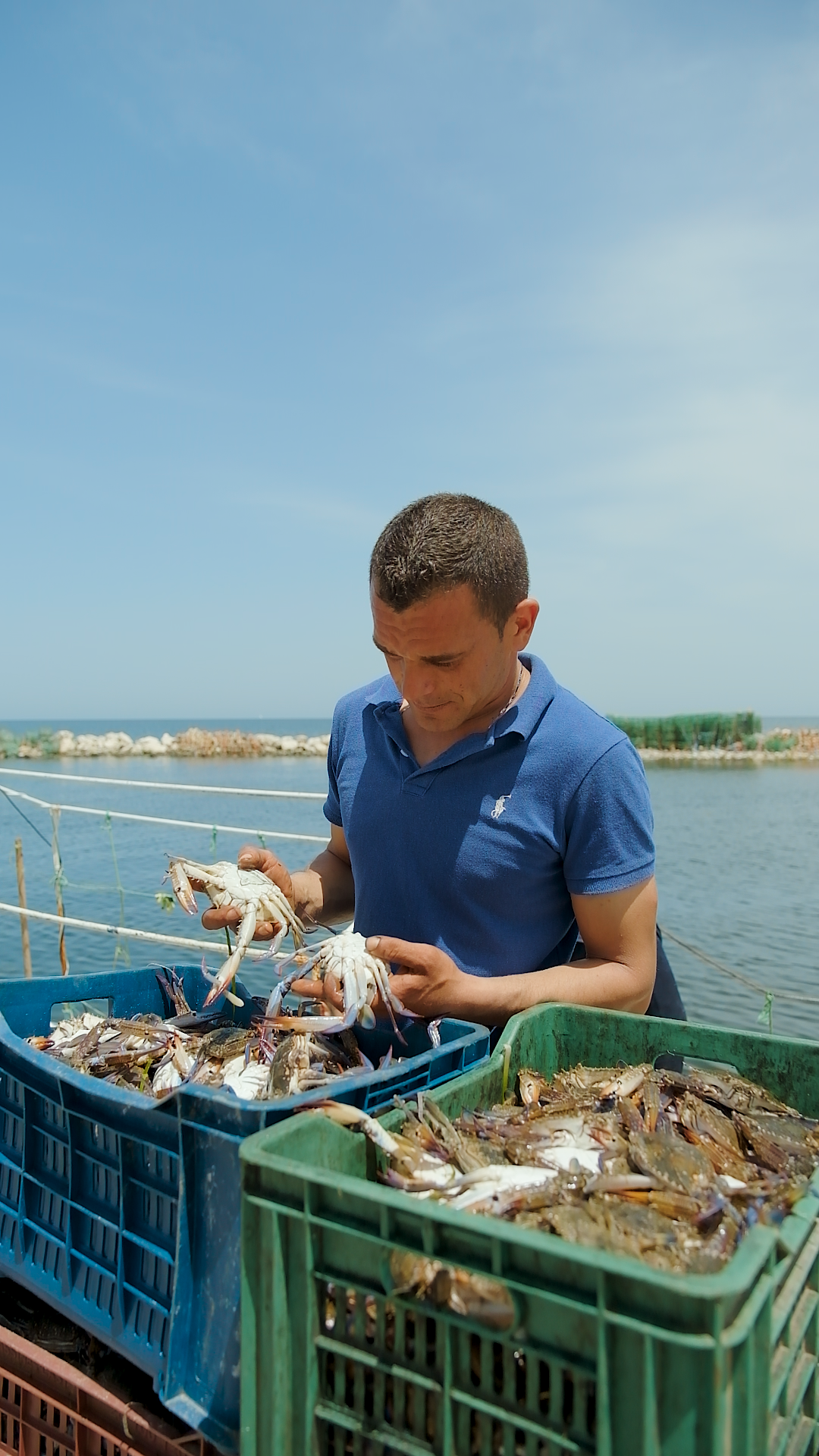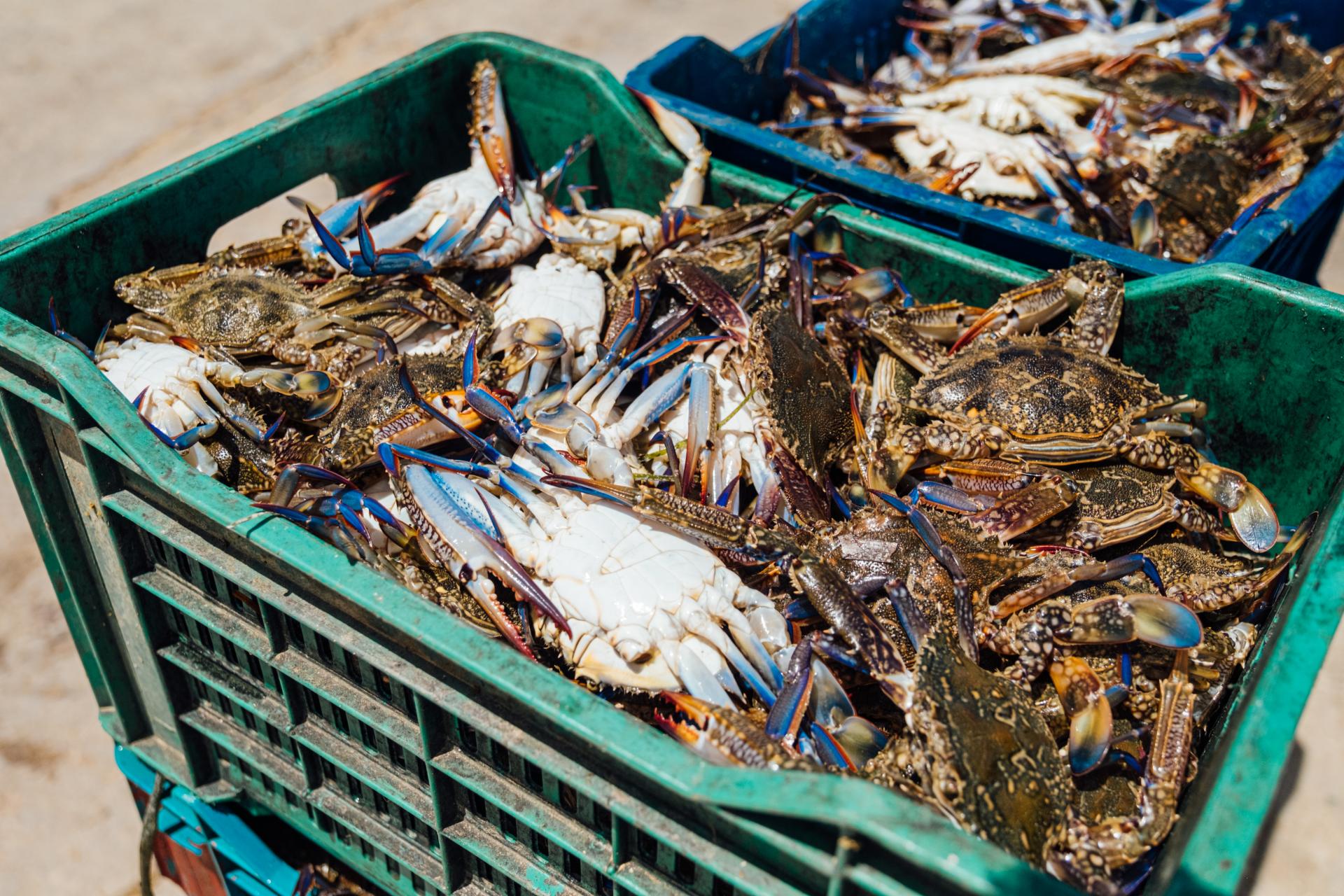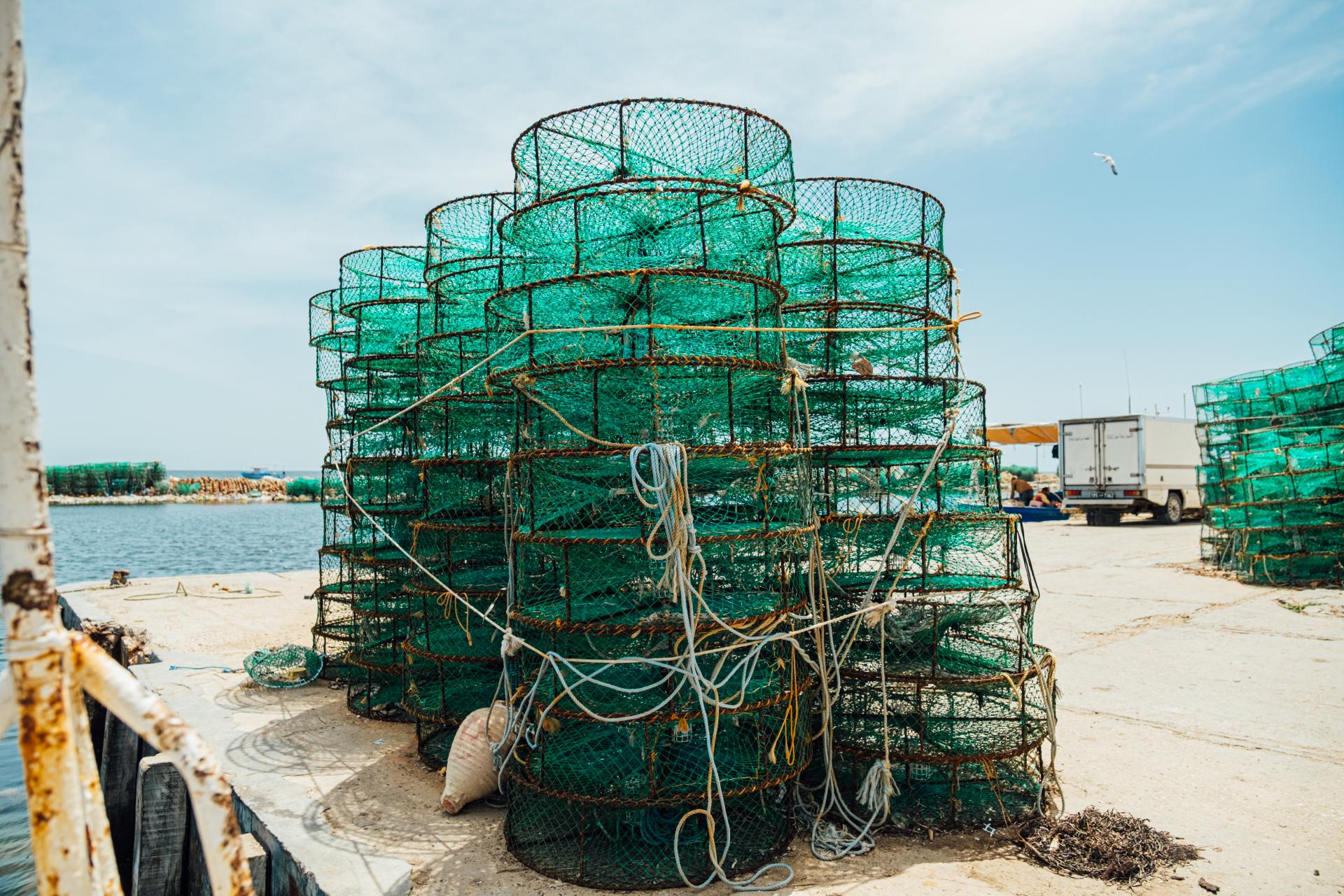The Blue Crab Success Story: How Fishers Turned an Ecological Threat into a Model of Sustainable Fishing and Community Resilience in Tunisia

The Mediterranean is Changing—And So Are Its Fishers
Rich in culture and biodiversity, the Mediterranean Sea faces is under growing pressure from non-indigenous species (NIS) that disrupt marine ecosystems and local livelihoods. Among those most affected are small-scale fishers, who stand on the frontline of these changes. Tackling this challenge requires innovation, adaptation—and support.
To address these issues, the GEF-funded FishEBM Med project supports practical measures to mitigate the impacts of invasive species while promoting sustainable blue economy initiatives. As part of this effort, SPA/RAC has developed a dedicated guideline on the identification and introduction of appropriate measures to prevent new NIS introductions and to control their spread in key Mediterranean sites—fully aligned with the Post-2020 SAPBIO framework.
This story from Tunisia showcases how determination, creativity, and international partnership can turn adversity into advantage.
From Crisis to Opportunity
Once feared and even locally known as “Daesh” by Tunisian fishers for its devastating impacts, the invasive blue crab (Portunus segnis) has become an unlikely symbol of economic hope and sustainable transformation along Tunisia’s southern coast.
The Invasion That Shook the Coast
In 2014, the blue crab, invaded Tunisia’s coastal waters. Its arrival brought chaos: it shredded fishing nets, destroyed catches, and sent shockwaves through the traditional fisheries sector.
“We lost everything. Every net came back shredded,” recalls Mohamed, a small-scale fisher from Sfax.
A Desperate Turn: Illegal ‘Kiss’ Trawling
As climate change, NIS invasions, and declining fish stocks made traditional fishing unsustainable, many fishers resorted to illegal shallow-water bottom trawling, known locally as “Kiss.”
By 2022, an estimated 576 ‘Kiss’ vessels were operating in the Gulf of Gabes of which 88 based at Louata port (Sfax). This unregulated activity not only damaged habitats but also undermined long-term fishery sustainability.
A Turning Point
Unexpectedly, the same blue crab that heavily impacted coastal livelihoods triggered a transformation.
With technical support from national authorities and international partners, some fishers began experimenting with crab traps—a legal, selective, and sustainable method of fishing. The tide began to turn.
“We went from illegal nets to legal traps. It was the beginning of a new life,” says Mohamed.
Today, 100% of blue crab fishers use traps. Driven by strong demand from Asian markets, crab exports soared, and a new local economy was born:
- 47 crab processing units were established,
- 90% of processing jobs are held by women,
- Former illegal fishers found pathways into legal and sustainable livelihoods.
The invasive species had become a catalyst for economic empowerment.
Following the International Day Against IUU Fishing, marked on June 5th, Tunisia’s blue crab story continues to offer a hopeful example. Rather than criminalizing struggling fishers, offering viable alternatives—like sustainable crab fishing—can reduce pressure on ecosystems and create jobs. To learn more, (re)discover Mohamed’s story in our video on Facebook and LinkedIn and see how sustainable fishing can turn a challenge into an opportunity.
Contact: For more information, please contact FishEBM Team at car-asp@rac-spa.org
About the project:
The "Fisheries and ecosystem-based management for the blue economy of the Mediterranean" (FishEBM MED) project, funded by the Global Environment Facility (GEF), is implemented by the Food and Agriculture Organization of the United Nations (FAO) and the United Nations Environment Programme (UNEP) and is executed by the General Fisheries Commission for the Mediterranean (GFCM) and the UNEP Mediterranean Action Plan (MAP), including its Specially Protected Areas Regional Activity Centre (SPA/RAC).
Learn more: https://www.spa-rac.org/en/article/238/fishebm-med
*FishAct 2023- FishAct investigation report Illegal shallow water bottom trawling, i.e. “Kiss” trawling in the Gulf of Gabes, Tunisia.

